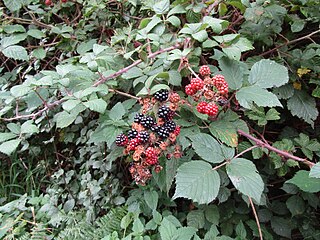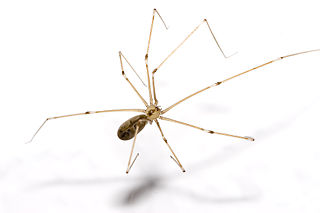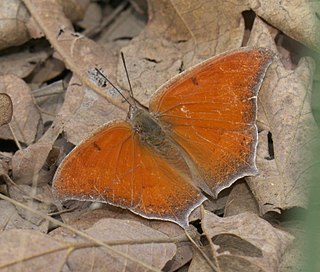
Rubus is a large and diverse genus of flowering plants in the rose family, Rosaceae, subfamily Rosoideae, with over 1,350 species, commonly known as brambles.

Convolvulaceae, commonly called the bindweeds or morning glories, is a family of about 60 genera and more than 1,650 species. These species are primarily herbaceous vines, but also include trees, shrubs and herbs. The tubers of several species are edible, the best known of which is the sweet potato.

The Pholcidae are a family of araneomorph spiders. The family contains more than 1,800 individual species of pholcids, including those commonly known as cellar spider, daddy long-legs spider, carpenter spider, daddy long-legger, vibrating spider, gyrating spider, long daddy, skull spider, and angel spider. The family, first described by Carl Ludwig Koch in 1850, is divided into 94 genera.
Aradus behrensi is a species of flat bug in the family Aradidae. It is found in North America.
Aradus inornatus is a species of flat bug in the family Aradidae. It is found in North America.

Aneurus simplex is a species of flat bug in the family Aradidae. It is found in North America.

Nyctelius nyctelius, known generally as the violet-banded skipper or nyctelius skipper, is a species of grass skipper in the butterfly family Hesperiidae. It is found in Central America, North America, and South America.
Aradus acutus is a species of flat bug in the family Aradidae. It is found in North America.
Aradus borealis is a species of flat bug in the family Aradidae. It is found in North America.

Hoplitis is a genus of bees in the family Megachilidae. There are more than 380 described species in Hoplitis.
Largus pallidus is a species of bordered plant bug in the family Largidae. It is found in North America.
Aradus shermani is a species of flat bug in the family Aradidae. It is found in North America.
Aneurus borealis is a species of flat bug in the family Aradidae. It is found in North America.

Phloeotribus is a genus of crenulate bark beetles in the family Curculionidae. There are at least 150 described species in Phloeotribus.

Chimarra is a genus of little black caddisflies in the family Philopotamidae. There are more than 630 described species in Chimarra.
Aradus intectus is a species of flat bug in the family Aradidae. It is found in North America.

Trogoderma variabile, commonly known as the warehouse beetle, is a species of carpet beetle in the family Dermestidae. It is found across Europe, Asia, Central America, North America and Oceania.
Mezira pacifica is a species of flat bug in the family Aradidae. It is found in North America.

Anaea andria, known generally as the goatweed leafwing or goatweed butterfly, is a species of leafwing in the butterfly family Nymphalidae. It is found in North America.
Aradus basalis is a species of flat bug in the family Aradidae. It is found in North America.









